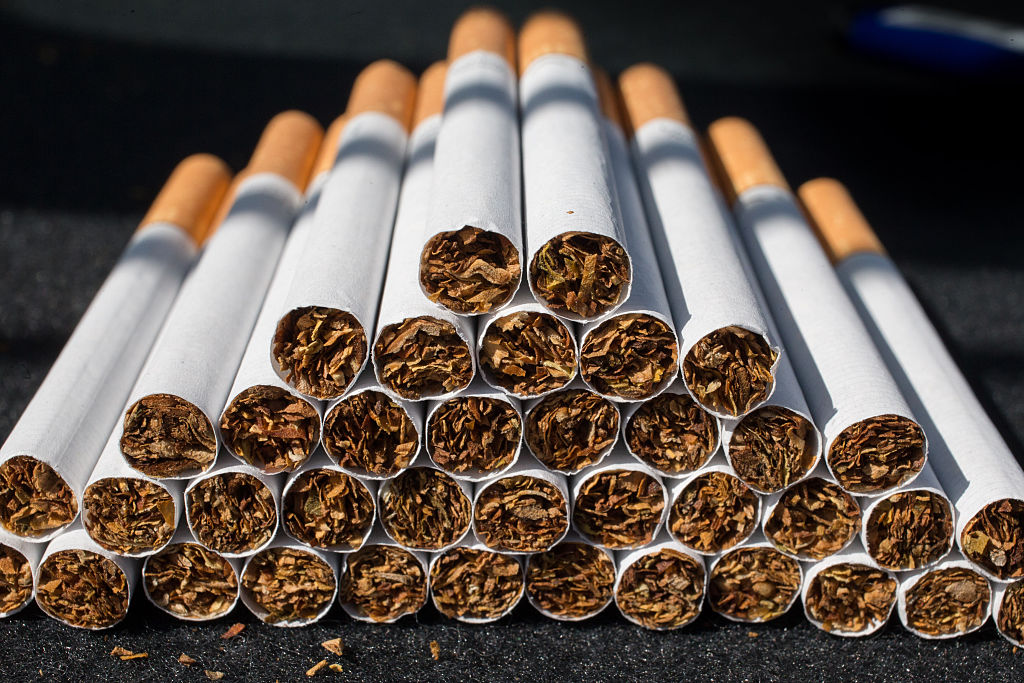The tobacco industry increasingly relies on child labor in poorer nations


A free daily email with the biggest news stories of the day – and the best features from TheWeek.com
You are now subscribed
Your newsletter sign-up was successful
Cigarettes sold in the U.S. and Europe are made using tobacco that is increasingly produced via child labor in poorer nations, an investigation by The Guardian published Monday found.
In places like Malawi, Mexico, Indonesia, Argentina, Zimbabwe, and India, rising numbers of children work in harsh conditions on tobacco fields instead of attending school. Because families working on tobacco plots are often indebted to landowners, they are forced to bring their children into the fields as unpaid labor, continuing the cycle of generational poverty, reports The Guardian.
About 1.3 million children were working in tobacco fields in 2011, the World Health Organization's Framework Convention on Tobacco Control said. Child labor has decreased in many places, but the U.N.'s International Labor Organization says wealthier nations have shrugged the practice off onto poorer countries. "Although there are no estimates of the number of child laborers in tobacco globally," an ILO report read, "surveys indicate that in impoverished tobacco growing communities, child labor is rampant."
The Week
Escape your echo chamber. Get the facts behind the news, plus analysis from multiple perspectives.

Sign up for The Week's Free Newsletters
From our morning news briefing to a weekly Good News Newsletter, get the best of The Week delivered directly to your inbox.
From our morning news briefing to a weekly Good News Newsletter, get the best of The Week delivered directly to your inbox.
Major tobacco companies told The Guardian that they are doing everything they can to combat the use of child labor. Company officials say they tell suppliers not to employ children and work with outside organizations to keep children in school and away from tobacco fields. Despite the commitment and efforts, WHO expert Vera Da Costa e Silva said the circumstances that lead to child labor continue to cycle. "No effective actions have been taken to reverse this scenario," said Silva. Read more at The Guardian.
A free daily email with the biggest news stories of the day – and the best features from TheWeek.com
Summer Meza has worked at The Week since 2018, serving as a staff writer, a news writer and currently the deputy editor. As a proud news generalist, she edits everything from political punditry and science news to personal finance advice and film reviews. Summer has previously written for Newsweek and the Seattle Post-Intelligencer, covering national politics, transportation and the cannabis industry.
-
 Why is the Trump administration talking about ‘Western civilization’?
Why is the Trump administration talking about ‘Western civilization’?Talking Points Rubio says Europe, US bonded by religion and ancestry
-
 Quentin Deranque: a student’s death energizes the French far right
Quentin Deranque: a student’s death energizes the French far rightIN THE SPOTLIGHT Reactions to the violent killing of an ultraconservative activist offer a glimpse at the culture wars roiling France ahead of next year’s elections
-
 Secured vs. unsecured loans: how do they differ and which is better?
Secured vs. unsecured loans: how do they differ and which is better?the explainer They are distinguished by the level of risk and the inclusion of collateral
-
 TikTok secures deal to remain in US
TikTok secures deal to remain in USSpeed Read ByteDance will form a US version of the popular video-sharing platform
-
 Unemployment rate ticks up amid fall job losses
Unemployment rate ticks up amid fall job lossesSpeed Read Data released by the Commerce Department indicates ‘one of the weakest American labor markets in years’
-
 US mints final penny after 232-year run
US mints final penny after 232-year runSpeed Read Production of the one-cent coin has ended
-
 Warner Bros. explores sale amid Paramount bids
Warner Bros. explores sale amid Paramount bidsSpeed Read The media giant, home to HBO and DC Studios, has received interest from multiple buying parties
-
 Gold tops $4K per ounce, signaling financial unease
Gold tops $4K per ounce, signaling financial uneaseSpeed Read Investors are worried about President Donald Trump’s trade war
-
 Electronic Arts to go private in record $55B deal
Electronic Arts to go private in record $55B dealspeed read The video game giant is behind ‘The Sims’ and ‘Madden NFL’
-
 New York court tosses Trump's $500M fraud fine
New York court tosses Trump's $500M fraud fineSpeed Read A divided appeals court threw out a hefty penalty against President Trump for fraudulently inflating his wealth
-
 Trump said to seek government stake in Intel
Trump said to seek government stake in IntelSpeed Read The president and Intel CEO Lip-Bu Tan reportedly discussed the proposal at a recent meeting
